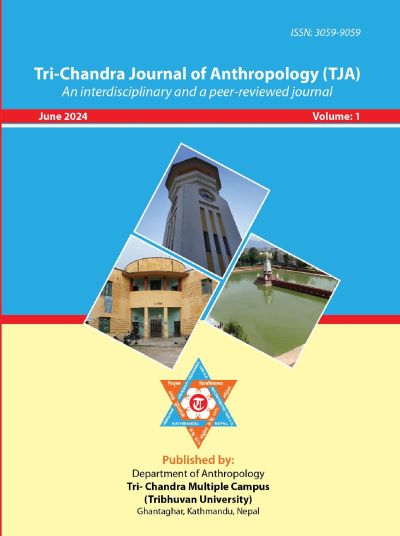Cultural Taboos in Kusunda and Raute People of Nepal
DOI:
https://doi.org/10.3126/tja.v1i1.67957Keywords:
Totem, prohibition, taboo, endangerment, beliefAbstract
The term taboo refers to the cultural prohibition practices by certain ethnic communities or societies. Its meaning is contextually different according to time, space, and ethnicity. It is the forbidden activities or behaviors and sometimes not accepted by the communities. The various taboos are grounded in traditional norms, values, ethics, or morality and are based on the religious beliefs of that specific community. Most of the ethnic communities of Nepal have specific totems and taboos that act as symbolic identities. This article is based on the cultural taboos of the two endangered ethnic communities of Nepal: Kusunda and Raute. They have some common and specific cultural taboos like the belief in the king of the forest, should not drink milk and should not eat or drink anything put in a milk pot, have the belief in the descendants of the Royal family, etc. This article explains the cultural taboos practiced by Nepal’s Kusunda, & Raute people. This article is based on the fieldwork study carried out on the different parts of Nepal where these people have traditionally inhabited.




